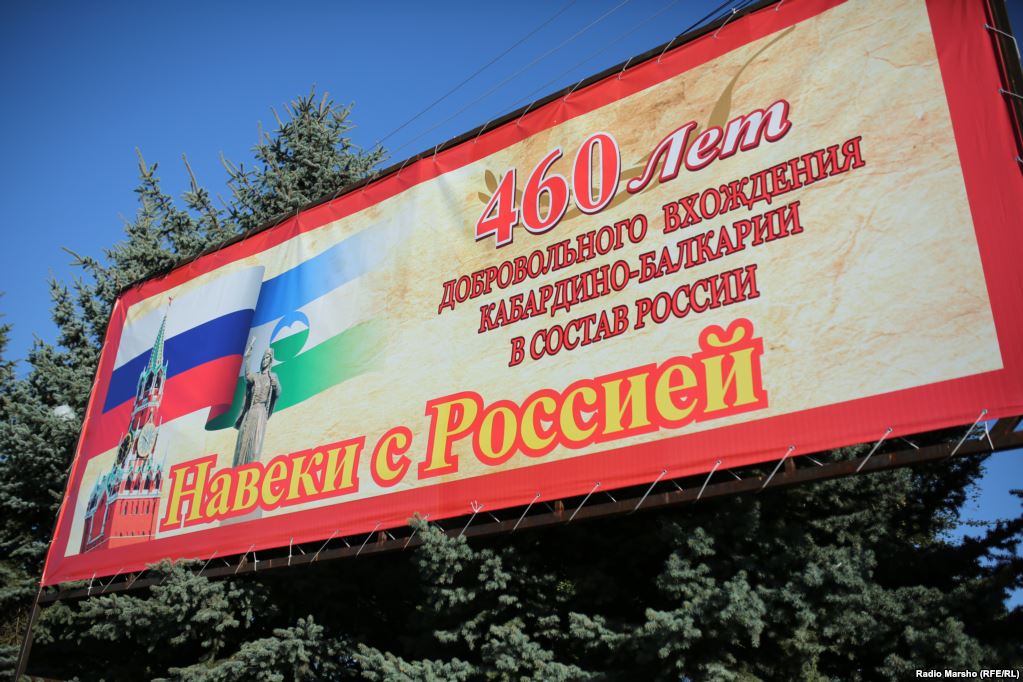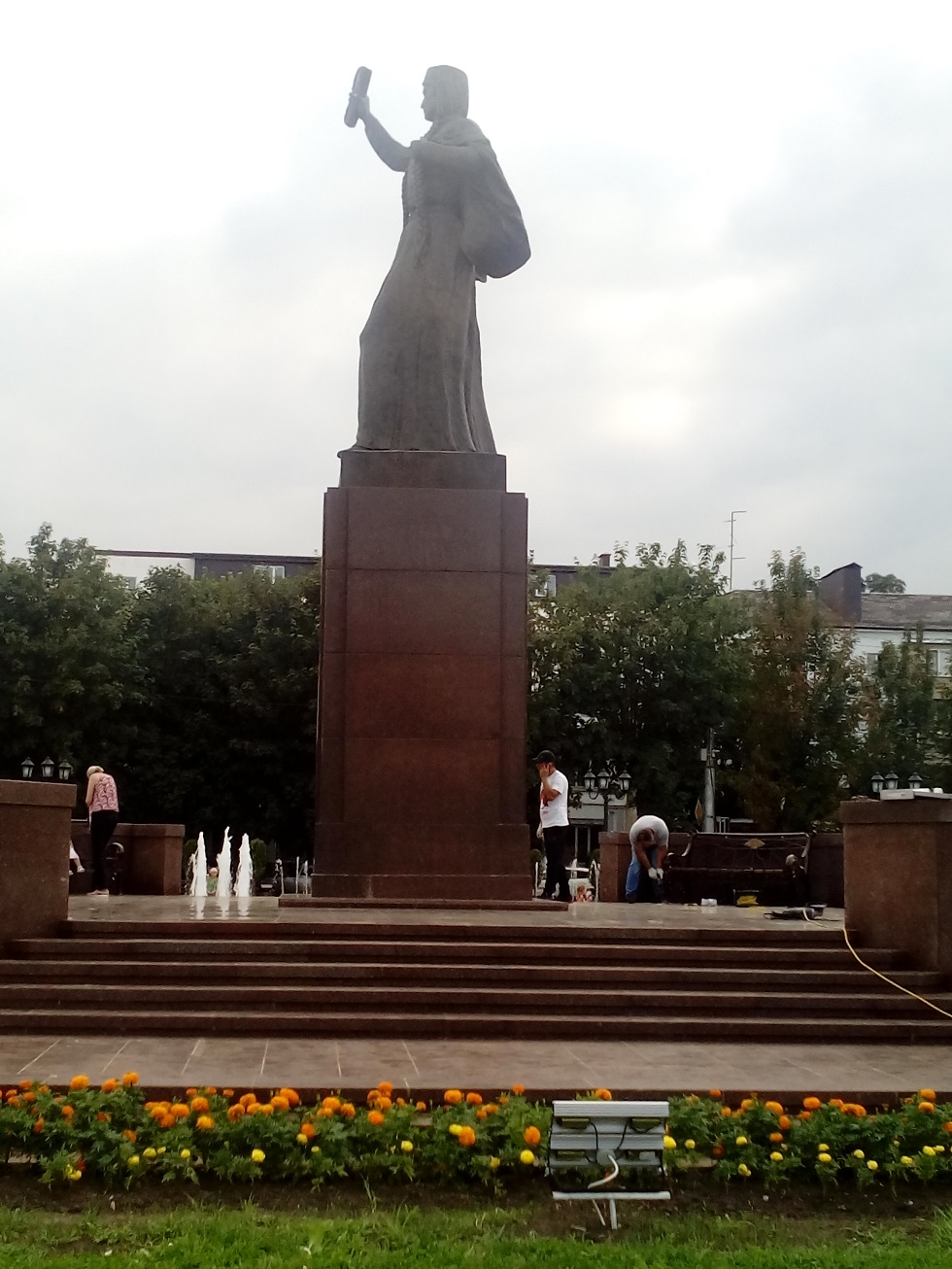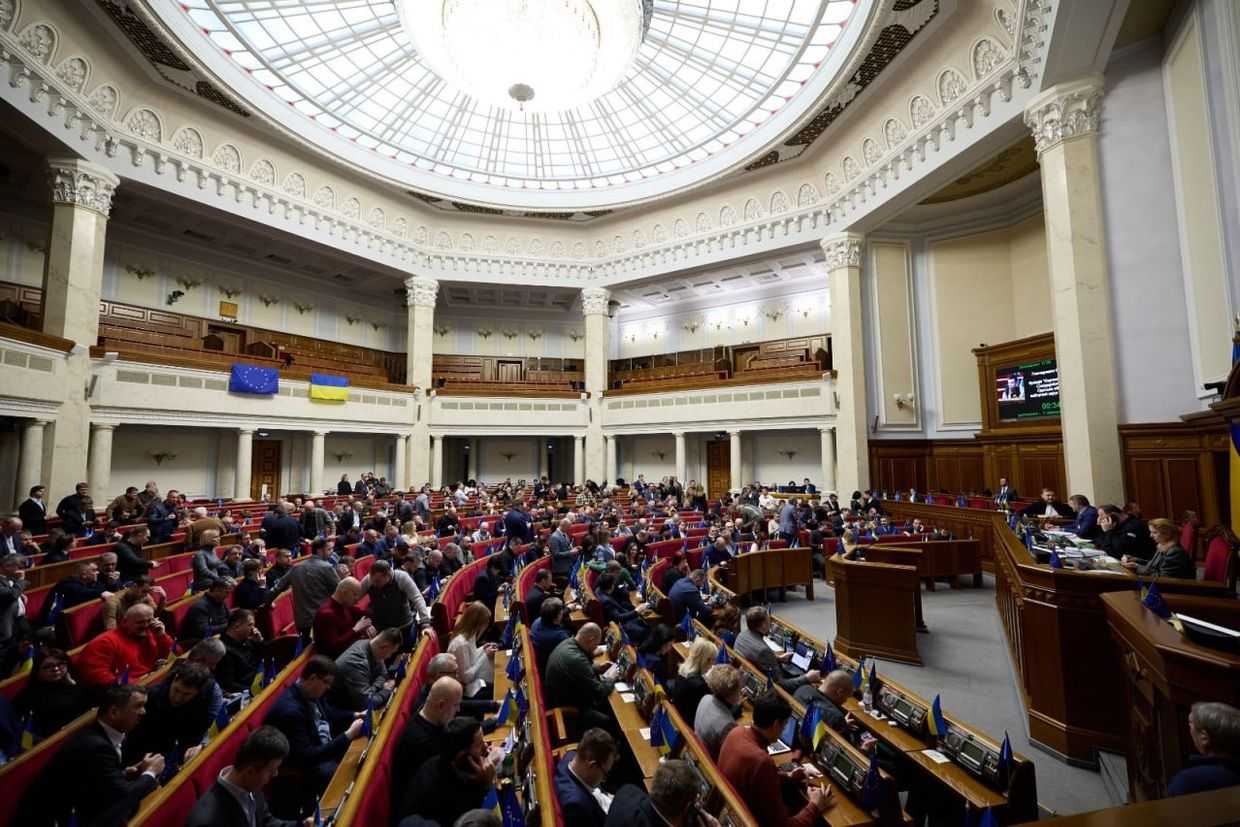‘The Great Day of Unity’ vs ‘the tragedy of the genocide’: Kabardino-Balkaria’s contradictory public holidays


 On 8 September, Kabardino-Balkaria celebrated the ‘460th anniversary of its voluntary entry’ into Russia. While the Northwest Caucasus — including what is now Kabardino-Balkaria — was conquered by Russia in the 19th century, this false narrative now serves as a loyalty test for local political elites.
On 8 September, Kabardino-Balkaria celebrated the ‘460th anniversary of its voluntary entry’ into Russia. While the Northwest Caucasus — including what is now Kabardino-Balkaria — was conquered by Russia in the 19th century, this false narrative now serves as a loyalty test for local political elites.
Conflicting narratives
There are two important anniversaries Kabardino-Balkaria marks every year. One is a huge celebration with extensive state funding, while the second is marked more quietly, with a silent mourning procession, exhibitions at the National Museum and the National Library, and TV and radio interviews with researchers.
The first celebration is to mark the anniversary of Kabardino-Balkaria’s ‘voluntary entry’ into the Russian state, celebrated on 8 September, while the second is known as the Day of Remembrance of the Circassian Victims of the Caucasian War, 1817–1864, observed on 21 May.
In other words, in May, the Circassian people mourn their ancestors who were conquered by Russia in the 19th century — labeled by many Circassians in Russia and abroad as the Circassian Genocide — while in the beginning of September they celebrate the merging of their country with the state which their ancestors fought against.
[Read also: Caucasus commemorates victims of the 19th century Russian conquest]
Celebrations of the ‘voluntary entry’ of Kabardino-Balkaria into Russia were first held in the Soviet era as an example of ‘friendship between peoples’ and the ‘centuries-old aspiration of the Caucasian highlanders to join progressive Russia’. Similar observances were established in North Ossetia and even in Chechnya–Ingushetia — the very same Chechnya which was conquered by Russia as late as in 1859 following a 25-year struggle under Imam Shamil’s command, and which was in a state of almost constant rebellion until the establishment of Soviet power in the 1920s.
In turn, the Day of Remembrance of the Circassian Victims of the Caucasian War was proclaimed in 1992 during the liberalisation period of Boris Yeltsin’s term as Russia’s president. There were no disagreements between the leadership and activists of the Circassian national movement on this matter. In 1992, during Valery Kokov’s time as head of Kabardino-Balkaria, a decree On the recognition of the Circassian genocide in the Russo-Caucasian War was issued. Nowadays, the authorities in the region try not to remember this. The decree was officially sealed and signed by the highest political figures of the three Circassian-populated republics of the North Caucasus: Adygea, Karachay–Cherkessia, and Kabardino-Balkaria.

Zaurbek Kozhev, a doctor of history and head of the Department of Mediaeval History of Kabarda at the Kabardino-Balkarian Institute of Humanities told OC Media that 21 May, which in 1992 was declared by Kabardino-Balkaria’s Parliament a day of mourning, used to be a holiday established more than a hundred years earlier by an imperial decree to mark the Russian conquest of the Northwest Caucasus.

Partnership between Kabarda and Russia
According to Kozhev, Russian–Kabardian relations from the 16th to mid-18th century were mostly on equal footing. The current celebration of ‘voluntary entry’ is directly linked to the opening of the first embassy of Kabarda in 1557 in Moscow. According to Russian chronicles, the ambassadors — representatives of the noblest estates of Kabarda — asked Ivan the Terrible to ‘take them as serfs and protect them from enemies’. However, the original text of the treaty itself was not preserved, and the embassy of 1557 was hardly the first initiative of this kind.
‘Certainly, those Kabardian princes who approached Moscow acted as junior partners, since the disparity in territory and human resources was too obvious. In the diplomatic vocabulary of feudal Russia, there was a formula “to come under the arm” of a senior partner. Russia itself treated its relations with Kabarda as a relationship with an independent country. Proof of this is the fact that the official correspondence with Kabarda went through the Ambassador’s Order, the analogue of the Ministry of Foreign Affairs of that time’, Zaurbek Kozhev told OC Media.
Promising loyalty and support to all Russian undertakings in the region, the Kabardian princes did not even think of attaching their lands to Russia. For a long time, there were no significant relations between Kabarda and Russia. Contacts were again activated only with the beginning of Russia’s expansion into the southern seas under Peter the Great. According to Kozhev, Russia treated its relations with Kabarda arbitrarily, abandoning them in the early 18th century while they fought off the Crimean Khanate, despite earlier pledges of support. In 1739, Russia and the Ottomans recognised Kabarda as an independent buffer state between their empires.
The annexation of Kabarda
Relations between Russia and Kabarda began to deteriorate markedly after Russia constructed the Caucasus cordon line, a series of strongholds along Russia’s southern flank in the Caucasus in the 1760s.
‘The erection of the Mozdok fortress [in modern-day North Ossetia] in 1763’, says Zaurbek Kozhev, ‘was unequivocally regarded by Kabarda as an unfriendly act, because the fortress was erected on land that the Kabardians considered their own, while five Cossack villages were erected on the left bank of the River Terek [marking the border between Kabarda from Russia].’
By the beginning of the Russo-Turkish War of 1768–1774, the problem had not been solved by diplomacy, and the Kabardians stood up against Russia and Mozdok. The war ended in Turkish defeat and the Ottoman Empire recognised Russia’s rights to Kabarda.
According to Kozhev, later, ‘Russian general Yakobi, trying to subjugate Kabarda, reminded Kabardian princes and nobles that they had become subjects of the Russian tsar voluntarily two centuries ago. Kabardian representatives answered that they had agreed to become “not serfs, but kunaks”, that is, not subjects, but friends, allies.’
During the Russian military expeditions to Kabarda at the turn of the 18th century, dozens of Kabardian villages were exterminated, and the final conquest of Kabarda happened in 1822. A sure sign of the annexation of the new territory to the empire was the establishment of the Russian military administrative system in Kabarda.
Aslan Boriyev, head of the Department of Theory and History of State and Law at the North Caucasus Academy of Management, told OC Media that ‘such a situation with official holidays and mourning dates in Kabardino-Balkaria and, more broadly, in Russia, is likely because […] the state cannot offer a constructive ideology. Therefore, it sees the proven Soviet way as the only way out of the situation: “friendship of the peoples” and “the Russian elder brother” ’.
Proof of devotion
In order to balance out the mourning day on 21 May, in 2014, the local authorities established the Day of Circassians, to be celebrated annually on 20 September. There is also the Day of the Circassian Flag, which was first celebrated on 25 April 2010.
As one of the founders of the holiday, assistant to the member of the Federation Council (the upper house of Russia’s parliament) from Adygea, Asfar Kuyek said in an interview to Caucasian Knot, the date of 25 April was chosen arbitrarily. ‘I wanted to hold a holiday in spring, because this time of year symbolises birth’, Kuyek said. But neither this nor any other new holiday — such as the anniversary of the ‘voluntary entry of Kabardino-Balkaria into Russia’ — is popular among the people.
Even the authorities themselves feel a certain awkwardness at these celebrations. The landslide in Kabardino-Balkaria earlier this year was a good excuse to abandon extensive celebrations to which the republic had been preparing for several months.
The head of the republic, Yury Kokov, made changes to the celebrations of the anniversary of the ‘entry’, removing a gala concert, a reception, and a big fireworks display from the programme. Frequent changes of the official name of the celebrations are indicative of this awkwardness as well. In 1957, celebrations were held in honour of the ‘voluntary accession of Kabarda’, in 2007 — ‘voluntary entry of Kabardino-Balkaria into Russia’, today — ‘voluntary entry of the Republic of Kabardino-Balkaria into Russia’.

Now the name sounds more inclusive towards the Balkar population of Kabardino-Balkaria — the second largest ethnic group of the republic — although the inconvenient ‘entry’ still persists. Nevertheless, the official media of the republic tirelessly reiterate the ‘progressive significance’ of this event, using the marriage between Kabardian princess Goshaney (later baptised as Mariya) and Tsar Ivan the Terrible in 1561 as a proof of the lasting ‘love between Kabarda and Russia’.
[See the photo gallery on Kavkaz.Realii: Kabarda–Russia, 460 years together]
‘The so-called “voluntary entry of Kabardino-Balkaria into Russia” ’, says Aslan Boriyev, ‘is a kind of a “symbol of faith” [in Russia] for the republic’s political elite, a sort of “mantra” that must be repeated in order to demonstrate their devotion to the federal centre, receiving in return a share of the Russian pie. Therefore, any idea, even on the basis of historical facts, which will contradict this position, will be considered a personal threat to those in power.’
[Read on OC Media: Unambitious state-backed Circassian groups hide a growing nationalism in young Circassians]




